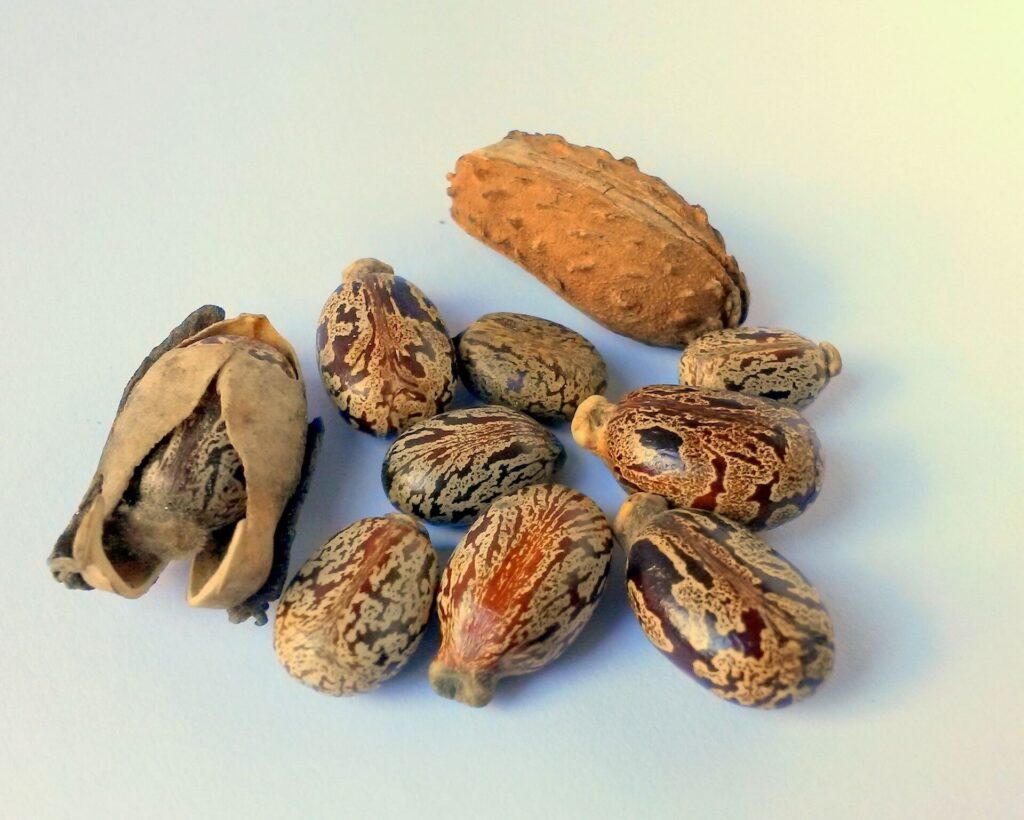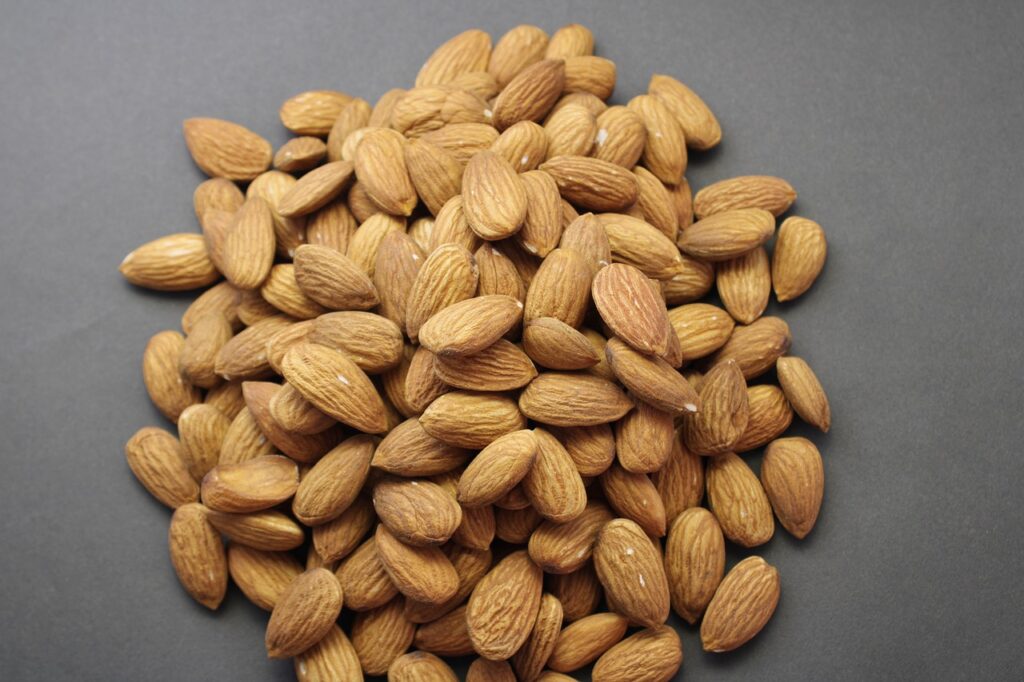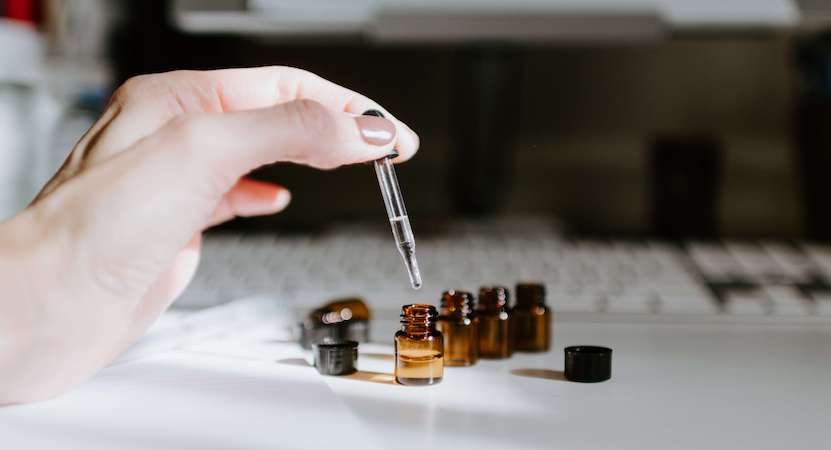Essential oils are potent plant substances found in the stems, barks, leaves, fruits, and roots. They give plants their aroma and flavor. Biologically, essential oils contain chemical compounds that act as defenses against diseases and pests. These active components are what have made essential oils quite popular for healing, nourishing, and rejuvenating the body.
Plant essences are widely used among consumers who wish to use natural, non-toxic products for healthy skin and hair. These extracts can be used for cleaning, soothing irritated skin, clearing up blemishes, and hydration.
Each oil has properties that make it suitable for a particular use. Whereas some oils are good for acne, others work better for chapped skin. Besides the skin, essential oils are widely used to enhance healthy growth of thick and lustrous hair.
Safety is crucial when it comes to using essential oils, and we’ll explore that too. While these compounds provide a lot of benefits and can help you attain youthful skin, they may not work when used incorrectly. In such cases, they can also trigger negative reactions. By the end of this blog, you’ll get a clear idea of which oil to use, where, and for what effect. Essential oils have a lot to offer for most problems that many people deal with concerning skin and hair health and can deliver positive results where other remedies have failed.
In this blog, we’ll go back in time and see how essential oils were used in the past. We’ll also take a look at the best essential oils. Moreover, we’ll explore how essential oils help with face, wrinkles, acne, eczema, skin tightening, skin lightening, sensitive skin, thin skin, body, dry skin, scars, skin rash, among a host of other amazing benefits.
So, let’s get right into it.
- Brief History of Essential Oils
- Best Essential Oils for Face
- Best Essential Oils for Body
- Best Essential Oils for Hair
- How to Safely Use Essential Oils
- Best Carrier Oils to Use
- DIY Essential Oil Recipes
- Essential Oils for a Healthier Lifestyle
Brief History of Essential Oils
Throughout history, essential oils have been used as part of traditional medicine and beauty in many cultures around the world. This is because of their antimicrobial, anti-inflammatory, and antioxidant properties. Ancient Egyptians used myrrh and frankincense oils for their anti-aging effects, while traditional Amazonian healers made antioxidant mixtures using plant extracts to treat various ailments.
Aromatherapy was used among the Chinese, Indians, and Greeks for relaxation, spiritual purposes, and medicine. Ayurveda, one of the oldest medical practices in the world, originated from India and has been around for more than 3,000 years. Essential oils were a central part of the elixirs used by traditional Indian healers, with myrrh, sandalwood, and cinnamon essences being some of the commonly used essential oils. Ayurveda is still practiced today to promote good health, and plant essences continue to play a significant role in Ayurveda.
The desire to replace harmful chemicals with natural alternatives has led to an increase in the demand for essential oils in modern times. Having been confirmed by various studies to possess numerous benefits even with medical skin conditions, essential oils have proven to be safe and effective for many applications.
Besides cosmetics, aromatherapy is another popular use of essential oils. So, not only can essential oils help provide you with healthy skin and hair, but also a relaxed state of mind with decreased anxiety and stress. With stress being a cause of dry skin and hair loss, the therapeutic benefits of aromatic plant compounds can also be used for personal care alongside topical application. This allows one to use fragrant oils that might not be as safe for topical application for aromatherapy instead, thus promoting health benefits from the inside out.
Best Essential Oils for Face
Facial skin is sensitive, so you need to be careful about the oils you use. As a general rule of the thumb, it’s best to avoid highly fragrant oils on the face, since they contain potent compounds that are more likely to irritate your skin. Some of the more fragrant oils include lemongrass, jasmine, geranium, oregano, and neroli oil.
Others to avoid are acidic essences such as those derived from citrus plants, including lime, tangerine, lemon, grapefruit, and bergamot essential oils. Camphor is also a common irritant that may not be safe for the face. Some of these oils can, however, be used safely if they’re mixed in lotions and moisturizers to minimize the possibility of irritation. What you use on your face should also depend on your skin type, condition, and sensitivity.
Essential Oils for Wrinkles / Anti-Aging
Signs of mature skin include fine lines and wrinkles. While these are natural signs of the aging process, they can also be brought about prematurely by sun exposure. Using some essential oils can keep your skin looking youthful even as you age. The essential oils can also reverse the damage done by the sun or toxins that cause premature aging.
Rose essential oil is rich in antioxidants and vitamin A which promote the growth of new skin cells. This results in firm, youthful-looking skin. Rosehip oil contains fatty acids that hydrate the skin and also retinoids, which make it brighter, both of which give skin a youthful appearance.
Another popular essential oil that has been used in anti-aging skin regimens for centuries is myrrh, which promotes circulation. This gives skin a radiant appearance. Frankincense has the same effect and also diminishes fine lines and wrinkles.
Ivy Branin, a naturopathic doctor in New York City, also swears by rose geranium oil which she notes contains “strong antioxidants so it can be useful in prevention of skin aging as a scavenger of free radicals. Just like most essential oils, it is also anti-bacterial and has anti-fungal properties. Rose geranium oil is also anti-inflammatory.”
Research has shown lemongrass to be quite effective when used as an anti-aging agent. In one study, it was used together with holy basil, ginger oil, and wan-san-long oil. Lemongrass oil is touted as a potent source of natural antioxidants that can be useful in cosmetics and spas. Other properties of lemongrass that make it great for anti-aging are its anti-bacterial, astringent, and anti-fungal properties.
Essential Oils for Acne / Clear Skin
To fight acne, it’s vital to reduce the production of excess sebum, kill bacteria on the face, and keep the skin well hydrated. Therefore, it’s important to use essential oils that have antibacterial properties and are also hydrating, good exfoliators, and gentle on the skin. Lavender is a soothing oil that diminishes blemishes on the skin, giving it a glowy appearance. Cinnamon essential oil can help reduce inflammatory symptoms such as pustules and cysts due to its antioxidant components.
Palmarosa and sweet orange oil also have an anti-inflammatory effect that can help fight acne. Tea tree and rose oil are antimicrobials that fight bacteria responsible for the spread of acne across the face. In fact, Milana Perepyolkina from Gypsy Energy Secrets says that “as soon as I see acne on my face, I add just one drop on top of it and see it disappear the next day.”
Geranyl and linalyl acetate are compounds found in clary sage essential oil that prevent the production of excess sebum. This makes clary sage essential oil an important ingredient in any natural skin care regimen for clear skin. In addition, you can use rosemary for its analgesic properties that help relieve discomfort associated with inflammation brought about by acne.
Essential Oils for Eczema
It’s crucial to go for oils with a soothing, anti-inflammatory, and hydrating effect to control the symptoms of eczema. Lavender oil can reduce inflammation and be used in bathwater or with a carrier oil. Tiffany Floyd, Owner of All that IS. Healing and Retreats, says that “lavender essential oil is one my favorites because it heals cuts, scrapes, and burns nearly overnight when applied directly to the site. Lavender’s cleansing and anti-stress properties make it perfect for a before-bedtime bath.” Calendula oil also diminishes swelling and pain, while acting as a humectant that helps repair dry and chapped skin.
Skin irritation and infections that accompany eczema can be controlled through the application of tea tree and eucalyptus oils, which have strong antiviral and antibacterial properties. Tea tree oil, in particular, is quite effective in treating eczema. One study showed that it could reduce symptoms of allergic contact dermatitis, a type of eczema, by up to 40.5 percent. Tea tree oil can also be used for cracked or broken skin to prevent infections.
Essential Oils for Skin Tightening
Reduced production of collagen, which is the protein responsible for the structure of the skin, causes loose skin. This can be a result of aging or cellular DNA damage due to sun exposure or oxidation. Loose skin can also be attributed to weight loss.
Jasmine essential oil is great for combating loose skin as it promotes blood circulation, which encourages the production of new skin cells. This leads to increased production of collagen, thereby firming up the skin. More skin cells also increase the hydration of the skin, which keeps it elastic.
Geranium is another oil that’s effective in repairing damaged collagen fibers and thereby combating wrinkles. According to Ronni Wilson, a licensed skin specialist and the owner of clean beauty brand Demosea, geranium essential oil “helps smooth the skin and improve skin elasticity.”
Myrrh oil moisturizes the skin and has antioxidants that fight off DNA damage on the dermal cells. Frankincense oil also encourages the growth of new cells and protects them from damage. Frankincense oil is especially effective because of the small molecular structure that enables it to penetrate deep into the skin structure quickly.
Essential Oils for Skin Lightening / Whitening
Skin complexion can darken due to various factors such as blemishes caused by acne, allergies, or hyperpigmentation. It can also happen due to sun exposure. Blackcurrant seed oil can brighten your skin tone thanks to its components that include omega 3 and omega 6 fatty acids.
These acids are effective in reducing the effect of exposure to UV rays and decreasing the incidence of sunburn. They can also lighten hyperpigmentation caused by the sun. Application of blackcurrant oil can heal scars and reduce dark spots on the face, promoting an even and brighter skin tone.
Grapeseed essential oil is another useful ingredient that can lighten complexion. This oil contains linoleic acid, which helps reduce breakouts on the skin. This is enhanced by the extract’s antimicrobial properties that keep acne at bay. As such, grapeseed oil is effective in eliminating and reducing blemishes which contributes to an even skin tone.
Essential Oils for Sensitive Skin
If you have sensitive skin, you should avoid highly fragrant oils. Essential oils with powerful anti-inflammatory properties are the best for this skin type because of their soothing capabilities. A good example is copaiba oil, which was also used by traditional Amazonian medicine practitioners in anti-inflammatory elixirs. Modern science has also confirmed its effectiveness against inflammation.
Copaiba is a gentle oil that can be applied as a daily cream. It contains beta-caryophyllene, a compound that soothes irritated skin. An excellent way of using copaiba oil is by mixing it with facial lotion.
It’s also advisable to avoid using highly acidic oils on sensitive skin. These include lemon and lemongrass oils. Besides copaiba, sandalwood, frankincense, and lavender are other soothing oils that are ideal for sensitive skin.
Essential Oils for Thin Skin
Skin becomes thin when the middle layer, the dermis, loses collagen and elastin. Thin skin breaks, bruises, and tears easily. In severe cases, it also becomes translucent such that one can see veins and tendons through it.
To change this, oils that promote the production of collagen should be used. Such oils include jasmine oil which stimulates circulation in the skin. This raises the skin’s hydration levels which results in increased elasticity.
Lemon essential oil has a high concentration of vitamin C, an important ingredient in most anti-aging products. Since aging is one of the causes of thinning skin, this oil can help combat its effects. Clary sage is another antioxidant-rich oil that prevents damage to skin proteins and cell DNA. In this manner, it enhances cell turnover, which renews the skin and makes it firmer.
Best Essential Oils for Body
Essential oils for the body can be used in baths or in the same way as those for the face by being mixed in skin products. Once again, choose your oils by keeping in mind the kind of condition that you wish to address.
Essential Oils for Dry Skin
Hot weather conditions and age are the two main culprits responsible for reducing activity in sebaceous glands, leading to dry skin. To balance moisture levels in your skin, use lavender oil which is a natural moisturizer. Lavender oil will also reduce redness which is a common symptom found in dry skin that is easily irritated.
Chamomile extract oil is another moisturizing ingredient that can control inflammation. Azulene is a major compound found in this oil and has been widely used in products made to soothe the skin. People with sensitive, dry skin should mix it with other mild oils such as cedarwood and lavender and dilute with carrier oils such as coconut oil.
Ylang ylang and rose oil have moisturizing properties as well that can hydrate and heal dry skin. These two leave the skin looking healthy, youthful, and nourished. Sandalwood oil is also hydrating and helps prevent irritation due to its anti-inflammatory properties.
Essential Oils for Scars
Essential oils with anti-inflammatory, antibacterial, and antioxidant properties are ideal for wound and scar healing. An ideal oil that has been noted to lighten the appearance of scars is helichrysum oil. It contains arzanol, an anti-inflammatory substance that promotes cell regeneration, hence enabling wounds to heal well. This highly reduces the chances of scarring on the skin. Ashli Carnicelli, a Licensed Aesthetician and Aromatherapist and founder of the clean aromatherapy skincare line Aisling Rose Skincare, finds that helichrysum oil promotes cell turnover, helps heal burns, and is a must have in any rosacea product. Ashli also says that it’s an incredible essential oil for oncology patients to treat radiation burns when prepared appropriately.
Essential Oils for Skin Rash
Skin rashes can be caused by many things, from insect bites to allergic reactions. The topical application of the right oil can address the issue with no harmful side effects. Frankincense can be used for skin rashes because of its anti-inflammatory activity.
For bug bites, tea tree oil provides quick relief. It can be directly applied to the patch of skin with the rash to relieve itchiness and swelling. However, for sensitive skin, it should first be diluted with a mild carrier oil.
Studies have shown cinnamon oil can also reduce skin inflammation such as acne and rashes. Another oil to consider for dry skin is German chamomile oil with the active ingredient bisabolol that is quite effective on skin rashes.
Best Essential Oils for Hair
Plants extracts have also been found to have a myriad of amazing benefits for hair. Various compounds aid in hair growth, prevent hair loss and promote shine. Some essential oils are also used for scalp health where they prevent dandruff and itching.
Essential Oils for Hair Growth
Increased blood flow to the scalp leads to the fast growth of healthy hair due to the constant supply of nutrients. Rosemary oil has this effect and is, therefore, excellent for hair growth. It can be used on the hair and scalp in the form of a mask, which can be left on for about half an hour, then rinsed off. For best results, mix it with jojoba and avocado oils so that it can be absorbed into the scalp and hair follicles at a high rate.
Various studies have shown peppermint oil to have amazing benefits with hair growth. One such study found that this oil promotes faster hair growth, thickens the follicles, and also increases their depth. This makes it hard for hair to break, which is one of the main challenges with weak hair. Peppermint oil has been observed to be more effective than minoxidil, the main ingredient in most hair growth products.
Clary sage is another oil that enhances hair growth and promotes the growth of thick hair shafts. It contains linalyl acetate which promotes a healthy breakdown of dead cells, thereby preventing inflammation and the formation of dandruff. This creates a healthy scalp that’s good for hair growth.
Essential Oils for Hair Loss / Thinning Hair
Hair loss can stem from many causes including hormonal imbalances, poor nutrition, and dry scalp. To combat this, oils that encourage the circulation of blood in the scalp and soothe the skin are vital. Rosemary oil stimulates hair follicles by enabling nerve growth on the scalp. It can also be useful for preventing the premature graying of hair.
For regrowth of hair, pumpkin seed oil is a good option. It acts by decreasing the constriction of blood vessels in the scalp, and in that way reduces inflammation. With the increased blood flow, it can prevent hair loss and enhance new growth. Essential pumpkin seed oil is also capable of blocking dihydrotestosterone (DHT), an androgen that causes hair loss in menopausal women.
The buildup of dead skin cells on the scalp can also contribute to hair loss. As an antibacterial agent, tea tree oil is ideal in preventing this as it treats dandruff, therefore clearing hair follicles. This stimulates hair growth. Tea tree oil can be mixed with minoxidil for faster hair growth results.
Essential Oils for Dry / Itchy Scalp
Itchy scalp is often a result of dandruff and seborrheic dermatitis which is an inflammatory skin condition. Other causes are fluctuating hormones, growth of excess yeast on the scalp, and stress. Itchy scalp can also be brought about by conditions such as eczema or psoriasis. Due to these varying factors, it’s crucial to identify the causative factor to choose the ideal essential oil.
Most oils that have antifungal, antiseptic, and anti-inflammatory properties can help alleviate dry and itchy scalp symptoms. Tea tree oil is a great choice and can be mixed with shampoo to eliminate itching. Martina Berducci, the founder of Live Honestly Healthy, says “when I wash my hair I love to add some tea tree oil to my shampoo. It is great to apply it on the scalp to keep it healthy. It stimulates and increases blood flow to the area. It helps to improve the conditions of the hair follicles which promotes healthy hair growth. Plus, it can take care of dandruff, in a gentle but effective way.” Peppermint oil can be useful for soothing the scalp since it contains menthol, a natural substance that has a cooling effect, which reduces itching caused by allergies.
Essential Oils for Frizzy Hair
Frizzy hair can result due to various factors such as genetics, damage of the follicles, and lack of moisture. Hydrating oils and those that promote healthy growth of the hair shaft can be used to control frizz. Palmarosa essential oil is a powerful moisturizer that keeps hair soft and manageable. Apply it on clean, damp hair and mixed with jojoba oil for maximum results. Cover with a plastic cap for 20 minutes, then rinse with warm water.
Besides hydrating the shaft, palmarosa oil also encourages the production of keratin, the hair protein that gives hair its structure. For a conditioner that will keep your hair from tangling, use ylang ylang and horsetail plant essential oils. Horsetail plant essential oil also reduces split ends which can contribute to a frizzy look, while ylang-ylang has a sweet fragrance that most people look for in hair products.
How to Safely Use Essential Oils
While essential oils have a lot of proven benefits for the face, skin, and hair, the positive effects can only be experienced through proper use of the oils. People who have had bad reactions to essential oils either use them inappropriately or are sensitive to some compounds which is normal. That said, it’s important to note that essential oils are non-toxic and generally safe for use.
Below are some safety tips for using potent plant oils that will ensure you get the best results each time.
Perform a Patch Test
Before using any skin product, you should perform a patch test to check for any allergic reactions. This goes for essential oils too. You can do this by applying a small amount of oil on the inside part of your forearm. Watch for any reactions in the next 24 hours. If you get symptoms such as rashes or reddening, you should avoid using this oil. If there’s no reaction, then the oil is safe for you.
Seek Professional Advice
If you’re thinking about using essential oils to treat skin conditions such as eczema, make sure you consult your dermatologist first. They’ll let you know if there will be possible interactions with any medication you’re using. The same applies if you wish to use the oil for cosmetic purposes but have existing skin problems. Using the wrong type of oil can aggravate your condition, so consulting with a physician or skin expert is crucial.
Buy Unadulterated Oil
The natural beauty market has grown rapidly over the past few years. This has given rise to numerous manufacturers claiming to provide the best remedies. Unfortunately, it has also led to an influx of unscrupulous companies offering impure essential oils in a bid to make a quick buck. Adulterated essential oils are those mixed with additives, carriers, and other chemical substances. Such oils don’t deliver the full benefits and increase the risk of allergic reactions.
As such, it’s advisable to only buy pure essential oils with no additives. Also, check for the expiry date since using outdated oils can be harmful to your skin. However, sandalwood, vetiver, and patchouli are a few of the essential oils that don’t degrade with time.
Avoid Photosensitive Oils
Certain essential oils should be avoided during the day because they increase the vulnerability of the skin to ultraviolet rays. Examples are bergamot peel, angelica root, bitter orange peel, grapefruit peel, and cumin seed oils. These oils can encourage sunburn, which is a major cause of premature skin aging. If you use them in the daytime, make sure you cover your skin adequately, or better yet, choose to use these oils in your evening routine.
Dilute with Carrier Oils
Essential oils rarely work when used in their concentrated forms. This is because they’re highly volatile and evaporate quickly when exposed to oxygen and light. Exposure to heat breaks them down turning them into irritants.
Carrier oils are also derived from plants and include jojoba, argan, and coconut oil. Their two main uses, when mixed with essential oils are dilution and improving the rate of absorption. Carrier oils keep the volatile compounds from evaporating or breaking down on the skin surface.
Moreover, they create a barrier that ensures the oils stay longer on the skin allowing for maximum absorption. Another option for diluting essential oils is adding them to your moisturizer, toner, and creams. Now, let’s take a look at some of the best carrier oils to use with your essential oils.
Best Carrier Oils to Use
Besides helping essential oils to work better, carrier oils come with individual therapeutic properties. That is why the oil you choose for dilution can affect the outcome. Some essential oils also work better when paired with certain carrier oils, so it’s important to be selective. Examples of carrier oils that you can use include:
Coconut Oil
Coconut oil is the most popular carrier oil because it’s easily accessible and can already be found in most kitchens. It’s also relatively affordable compared to other carrier oils. Moreover, it has a long shelf life because of its high concentration of lauric acid.
This oil is beneficial to hair and skin as it possesses powerful moisturizing properties. It’s suitable for use in products meant for repairing dry skin, scalp, or damaged hair. Solid coconut oil can be used at home to make balms and creams that contain essential oils for various uses.
Jojoba Oil
Jojoba oil is perhaps the second most popular carrier oil after coconut oil due to its high absorbency rate. It’s also quite similar to the natural oil produced by human skin, sebum, which makes it easy to use on oily and combination skin types. Jojoba is highly hydrating and protects collagen fibers from getting damaged by UV rays.
Argan Oil

Argan oil is derived from the fruit of the Moroccan argan tree and is commonly used in anti-aging products. It’s rich in linoleic and oleic fatty acids that protect against UV damage and promote the regeneration of skin cells. This eliminates stretch marks and scars while healing inflammation. Argan oil can also be used in hair care formulations as it helps repair split ends and enhances hair growth.
Castor Oil

Castor oil has been used for centuries to treat skin conditions due to its anti-fungal, anti-bacterial, and anti-inflammatory benefits. It’s mostly used in hair care regimens as it has been shown to have positive effects such as rapid hair growth. This is attributed to its composition of ricinoleic acid, which kills bacteria that would otherwise clog pores on the scalp.
The oil improves circulation within the scalp thereby accelerating the growth of well-nourished hair. The presence of omega 6 fatty acids in castor oil gives hair a natural shine. Research has also shown that castor oil softens hair and prevents thinning, breakage, and the formation of split ends.
Sweet Almond Oil

Sweet almond oil is an ideal carrier for essential oils used on the skin. It contains vitamin E, which is an antioxidant that repairs damaged collagen fibers. This promotes supple and youthful skin with fewer wrinkles and fine lines. This oil contributes to skin cell regeneration and moisturizes dry skin. It also has oleic acid that soothes irritated skin and relieves inflammation.
Olive Oil
Olive oil comes from the Mediterranean and has been used for centuries in skin care, cooking, and medicine. The oil is high in phenols and antioxidants that soothe the skin. Antioxidants found in olive oil are also superb for mature, dry skin.
DIY Essential Oil Recipes
Now that you know all about the advantages of using essential oils, here are some ways to make effective combinations at home.
For the Face
Ingredients
- 20 drops tea tree essential oil
- 30 drops frankincense essential oil
- 40 drops lavender essential oil
- 4 teaspoons sweet almond oil
Instructions
Mix all the ingredients in a 1-ounce glass dark-colored dropper bottle. Put the lid on tightly and shake to combine the oils. The mixture is ready to use by applying about 10 drops to your palms then patting the oil on the face and neck .
Store the oil in a cool place for later use. This recipe makes a great overnight facial moisturizer and can be useful for dry skin.
For the Skin
Ingredients
- 20 drops tea tree oil
- 1 tablespoon coconut oil
- 3 tablespoons honey
- 1 tablespoon apple cider vinegar
- 2 capsules live probiotics
Instructions
Mix all the oils and use a hand blender to combine well. Pour into a dark glass bottle and keep in a cool place for future use. Use this mixture for clear skin head to toe that is free from acne and blemishes.
For Hair
Ingredients
- 3 drops clary sage essential oil
- 3 drops rosemary essential oil
- 3 drops tea tree essential oil
- 3 drops lavender essential oil
- 1-ounce jojoba oil
Instructions
Mix all these oils to form a concoction that will repair dry and damaged hair. Like the other mixtures, store it in a dark-colored bottle and keep it in a cool place away from direct sunlight. To use, apply onto scalp and hair, then wrap your hair. Rinse after half an hour.
Essential Oils for a Healthier Lifestyle
Essential oils have the ability to make your body healthier both on the inside and outside. Chelsea Gilson, the founder of lifestyle blog, Traveling Fig, said this about using essential oils for her skincare:
“The benefits of using essential oils in skincare go beyond the physical. The right blend of high-quality oils has the power to turn your skincare routine into a zen-like experience. I’ve been using oils for years in my yoga classes – either invigorating with orange peel in the morning or calming with lavender blends at night, and the effects are undeniable. Add this sensory experience with the skin healing benefits of tea tree oil or hydrating effects of rose oil, and you’ve just seriously elevated your skincare regimen.”
There are thousands of essential oils in the world, hundreds of which are available commercially. If you’re diligent in your search, you’ll find several that work perfectly for you without any side effects. The key to reaping all the benefits listed above is to select oils that address your specific concerns.
Many natural beauty and health enthusiasts have gained a great deal from using these oils. If you haven’t tried them yet, it’s time to add a few into your daily facial, skin, and hair care routines. The same goes for anyone who has been struggling to get results while using conventional personal care products. Plant-derived essential oils are your best bet for getting positive results without introducing toxins into your body.
Did You Enjoy This Article?
If you enjoyed this article, you might also like our articles discussing beauty and skincare such as 16 Top Non-Toxic Nail Polish, Top 45 Clean Beauty Statistics and Trends, and Best Natural Anti-Aging Skincare.




Pingback: Aromatherapy Skincare | The Skincare Belle